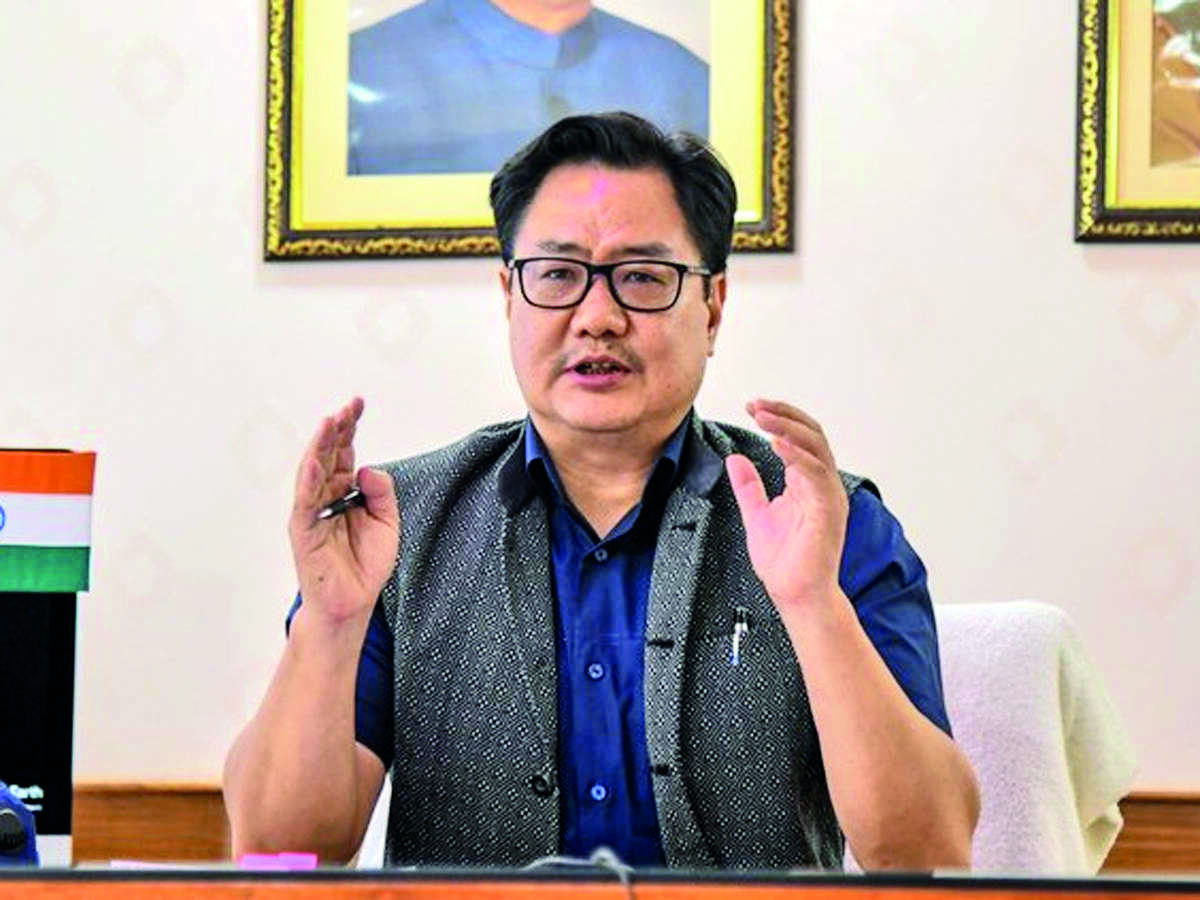Kashmir issue a result of Nehru's 5 blunders: Law Min Kiren Rijiju

New Delhi: As India is celebrating 75th year of India's independence, Union Law Minister Kiren Rijiju has termed October 27 as the 75th anniversary of an important day in a series of Jawaharlal Nehru's greatest blunders, both before and after this date that haunted India for the next seven decades.
In an editorial, the Union Minister has stated that there were five Nehruvian blunders on Kashmir that hobbled India for the next seven decades as when India was being partitioned in 1947, the principle of Partition only applied to British India and the princely states were free to choose any of the two new dominions about to be created.
In case of Kashmir, a historical lie has been perpetrated for the past seven decades that Kashmir was also among the princely states that created problems and Maharaja Hari Singh, the then ruler of the state, was dilly-dallying on joining India, he said, adding that as documents now reveal, it was Nehru who, created these problems and not the Maharaja.
As per Rijiju, the first blunder of Nehru in unification of Kashmir with independent India was the popular approval bogey that was invented by Nehru for Kashmir citing it a 'special case'. "At the time of Partition, the ruler of Kashmir wanted to unite with the rest of India without conditions, but it was rejected by Nehru," he said while citing Nehru's speech delivered in Lok Sabha on July 24, 1952.
The second blunder on Kashmir was declaring the eventual accession as provisional, he said, adding that the Maharaja signed exactly the same instrument of accession as every other princely state and all other princely states were unambiguously integrated into the union, except Kashmir.
The third blunder on Kashmir was to approach the United Nations on January 1, 1948, under Article 35 that deals with disputed lands rather than Article 51 which would have been the correct article to highlight Pakistan's illegal occupation of Indian territory. It was Nehru who gave a locus to Pakistan by himself accepting Kashmir as a dispute between India and Pakistan and since then, the UN resolutions have continued to haunt India, the union minister stated.
As per Rijiju, the fourth Nehruvian blunder was to let the myth perpetrate that a UN-mandated plebiscite in Kashmir was being stopped by India as on August 13, 1948 United Nations Commission for India and Pakistan resolution had three conditions in sequential order – first was ceasefire, second was withdrawal of troops by Pakistan and third was plebiscite. Part III was contingent on Parts I and II being fulfilled as Pakistan failed to fulfill the second condition.
"The fifth blunder was the creation and perpetuation of Article 370 (Article 306A in the interim draft) and there was no justification for such an article as the instrument of accession was the same as every other princely state signed," he said.



